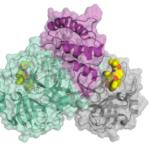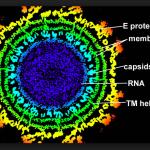Pre-exposure prophylaxis (PrEP) is one of several historic breakthroughs in the four-decade battle against HIV/AIDS.
hepatitis c
As Professor Katherine Seley-Radtke (1) and I wrote last July in an op
Infectious disease is responsible for a substantial amount of morbidity and mortality around the world.
Florida recently declared a statewide emergency because of an inordinately large number of hepatitis A infections.
A little luck and a clever idea can go a long way in finding treatments for unmet medical needs. One way to do this is by making use of drug repurposing - the process of discovering "new" drugs from "old" ones.
As I've written before, drug companies, no matter how revolutionary a discovery they make, cannot control human behavior.
Who among us hasn’t been tormented by the itch after a mosquito bite? This is due to the histamine release at the offending site.
By definition, people who are undergoing hemodialysis pumpin









